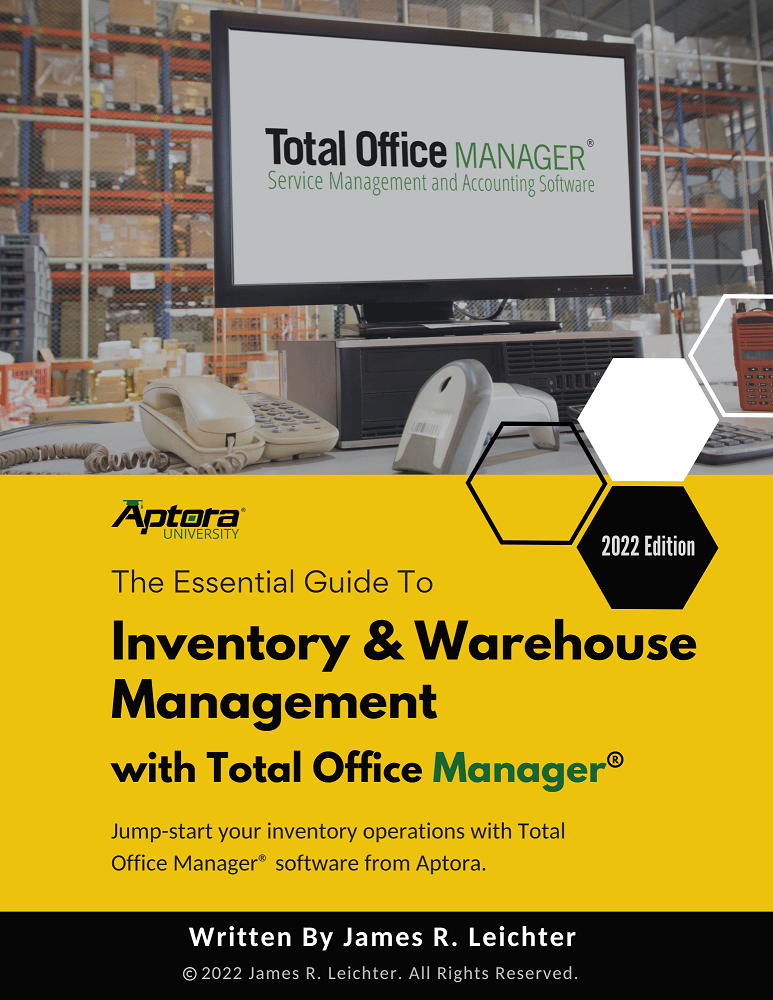
The Retail Accounting Playbook: Bookkeeping, Inventory, COGS, and More
Over my many years in the field service industry, I’ve learned that the way you look at your numbers can really make or break you

Key Takeaways
In today’s digital age, business owners are often encouraged to manage their accounting and tax issues using various software solutions.
However, just as installing Photoshop on your computer doesn’t make you a graphic designer, having accounting software doesn’t turn you into a skilled accountant. While software can follow instructions, an expert accountant brings invaluable insights, strategy, and precision to the table—qualities that can significantly impact your business’s success.
Think of an accountant not as a number-cruncher but as a trusted partner who can help you grow and navigate your business’s financial landscape.
When many people hear the word accountant, they picture someone preparing tax returns. But an accountant’s expertise extends far beyond tax laws. Accountants are invaluable consultants with deep knowledge of business operations, financial planning, and growth strategies. They can be the secret weapon for entrepreneurs looking to take their businesses to the next level.
Let’s break down the core areas where an accountant can make a difference:
One of the most valuable services an accountant provides is acting as a business consultant. Accountants often understand the nuances of your business, finances, and industry better than you do. This insight makes them ideal advisors when you’re crafting a business plan, exploring expansion opportunities, or considering insurance options. By leveraging their experience and analytical skills, accountants can provide actionable, tailored advice that aligns with your goals and financial realities.
While accounting software makes record-keeping more accessible, maintaining accurate financial records is still a time-intensive and critical task. Many business owners choose to handle their books themselves and decide their own structure for financial reporting, as they are ultimately responsible for their accuracy in case of audits or lender scrutiny.
Accountants are often brought in during the initial setup of accounting systems, providing guidance on tools that track revenue and expenses, reduce operational costs, and ensure compliance. These systems also help business owners monitor financial health in real-time, establish budgets, and streamline year-end tax preparation.
Check out our “Complete Accounting Dictionary for HVAC Companies”—a helpful guide to understanding key accounting and bookkeeping terms.
Tax laws are complex, and staying compliant while minimizing your tax burden requires a strategic approach. Accountants offer two key tax-related services:
Some businesses even seek international tax advice to gain additional advantages. For example, Cyprus has become a hub for premium tax consulting services due to its favorable tax laws.
Auditing isn’t just for large corporations—it’s a critical tool for verifying the accuracy of financial statements. Audits may be required by banks during loan applications or by stakeholders to ensure transparency. Auditing services range from basic financial statement preparation to thorough evaluations that guarantee your records meet regulatory standards.
Finding the right accountant can be a game-changer for your business. Here’s a step-by-step guide to making the best choice:
Reach out to trusted professionals like your lawyer, banker, or business associates for recommendations. Many states also have Societies of Certified Public Accountants (CPAs) that can provide referrals.
A CPA designation guarantees a baseline level of expertise. CPAs must pass a rigorous national exam and often meet additional state requirements, such as having a college degree and relevant work experience. This ensures they’re equipped to handle your business’s accounting needs. You can verify the credentials of any CPA for free online with services like NASBA’s CPAverify or the IRS’s RPO Preparer Directory.
Before meeting prospective accountants, list the specific services you need and determine how much of the accounting work you’re willing to delegate. This will help you assess whether a candidate is a good fit.
Your accountant will be a close and trusted advisor, so personality and communication style matter. Do they listen carefully? Are their answers thoughtful and easy to understand? If you’re working with a firm, confirm who will handle your account and ensure their approach aligns with your business’s accounting needs.
Beyond tax preparation, does the accountant offer services such as management consulting, bookkeeping, or investment analysis? If specialized services aren’t available in-house, ask if they have a reliable network of professionals for referrals.
An accountant with experience in your industry will be more familiar with relevant regulations and nuances, saving you time and reducing the likelihood of errors.
Accounting fees can vary widely, typically ranging from $100 to $275 per hour or more, depending on the services and expertise required. Some accountants offer monthly flat fees, which can be more cost-effective depending on your needs. Always gather multiple quotes and calculate the total annual cost to your business to ensure you’re getting value for your money.
An experienced accountant should have no hesitation in providing references from satisfied clients. Contact a few to gauge their experiences, focusing on availability, expertise, and communication skills.
A skilled accountant is more than a service provider—they’re a strategic partner invested in your success. By carefully selecting an accountant who understands your business and aligns with your goals, you can gain a valuable ally who will help you navigate challenges, seize opportunities, and achieve sustainable growth.
You might need an accountant if your business is growing rapidly, you’re struggling to manage financial records, or you’re entering areas like hiring employees, seeking loans, or planning for expansion. If financial management feels overwhelming or time-consuming, it’s time to consult an accountant.
It depends on your business size and needs. A full-time accountant is ideal for large businesses with complex finances, while small businesses or startups often benefit from hiring a freelance accountant or accounting firm on a part-time basis.
Bookkeepers handle day-to-day financial tasks like recording transactions, managing payroll, and reconciling accounts. Accountants analyze this data to provide financial advice, prepare taxes, and assist with long-term planning. Some professionals may offer both services.
Ask about their certifications, continuing education, and membership in professional organizations like the AICPA (American Institute of Certified Public Accountants). Regular participation in workshops, courses, and industry updates ensures they stay current.

Subscribe to our newsletter


By submitting this form, I agree to receive marketing communication via phone call, email, or SMS from Aptora.

By submitting this form, I agree to receive marketing communication via phone call, email, or SMS from Aptora.